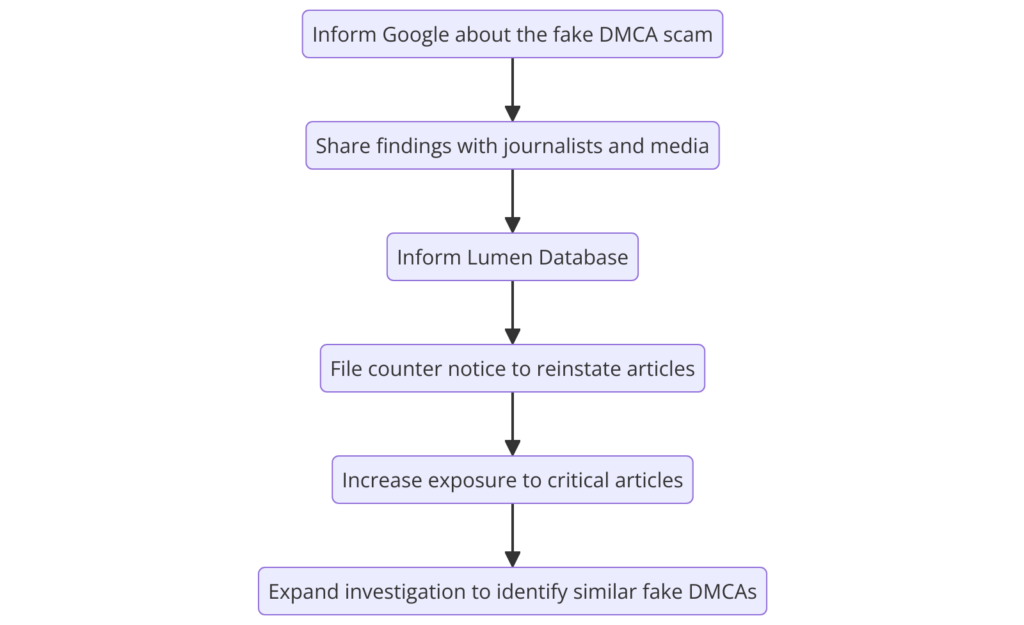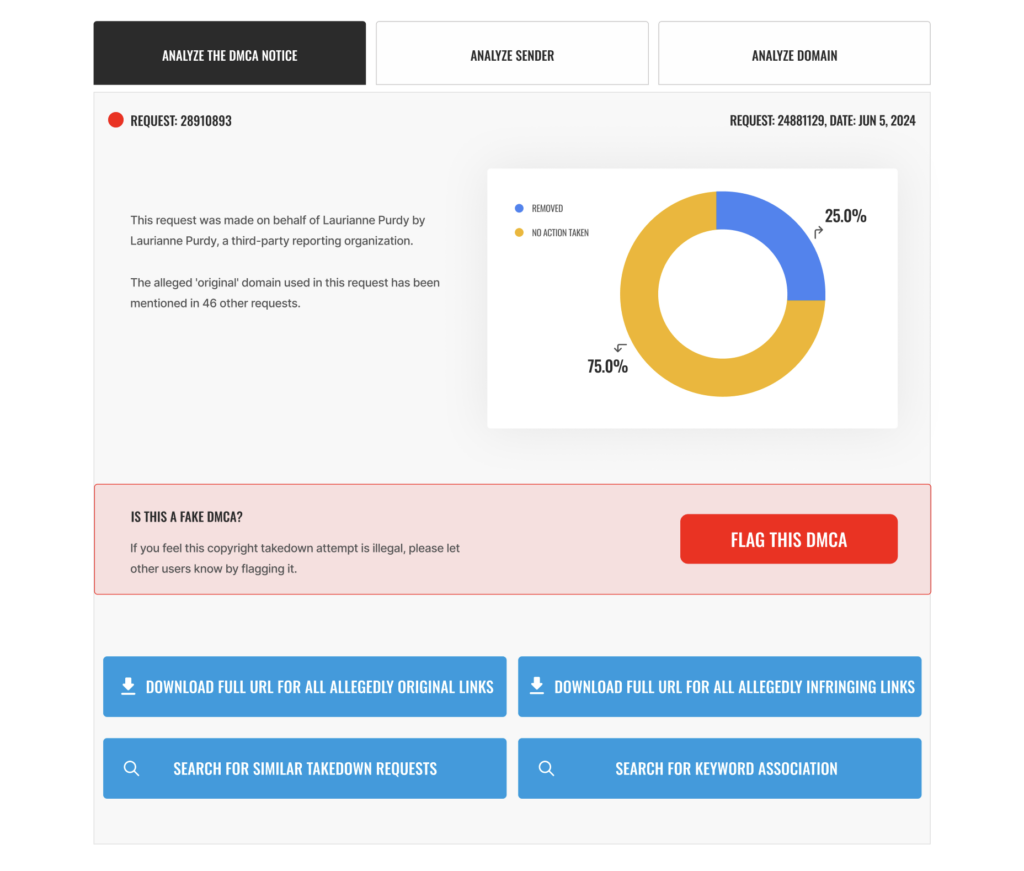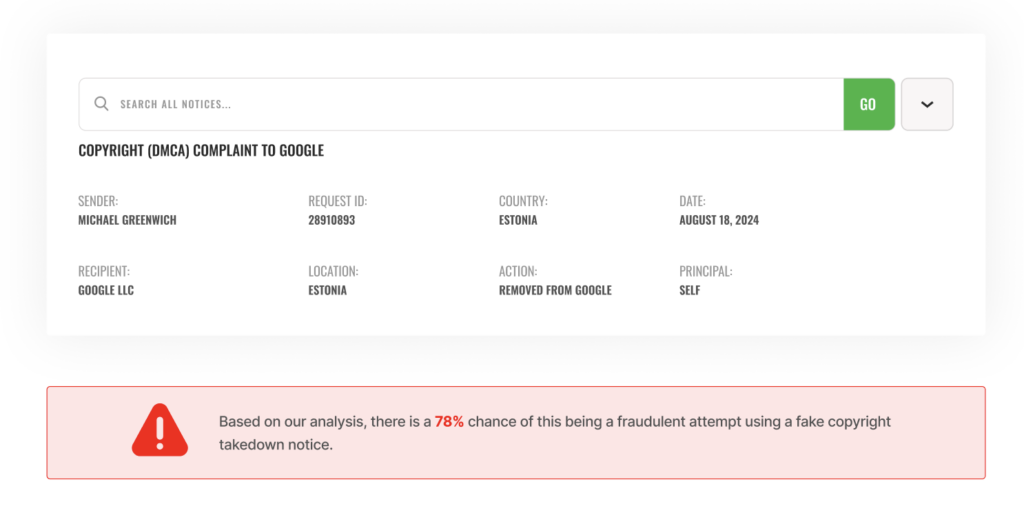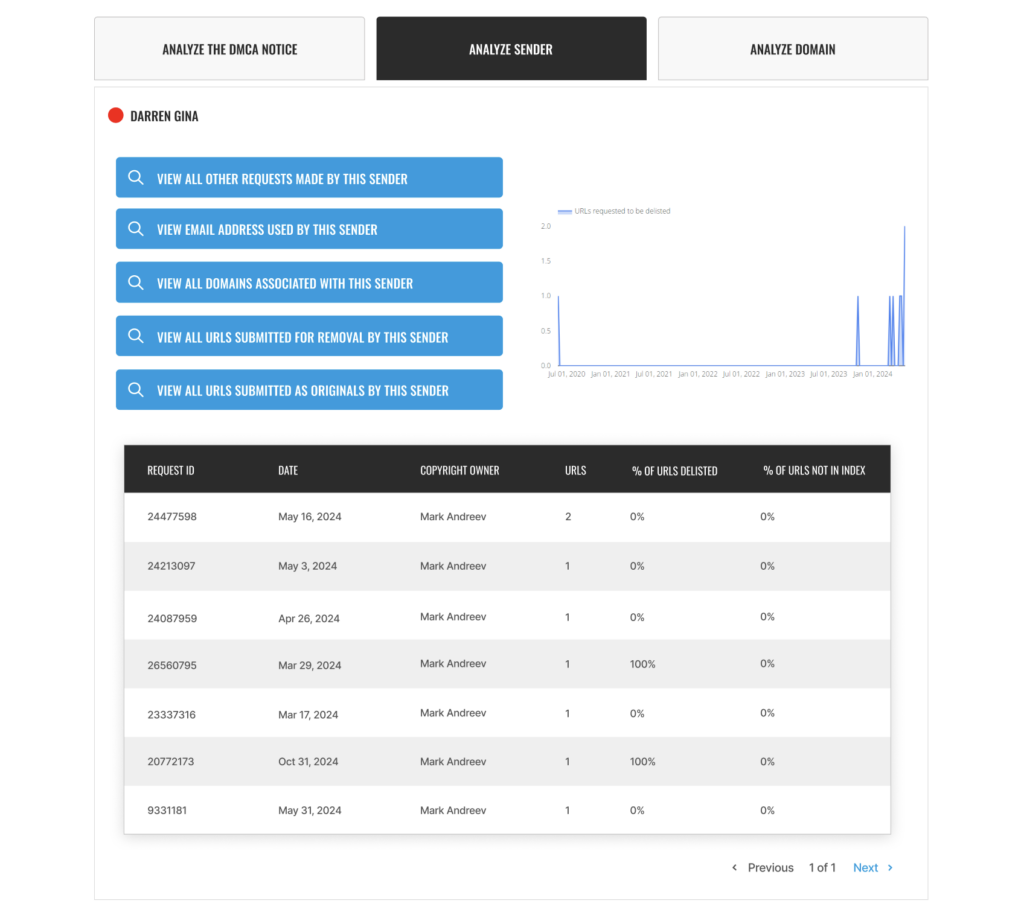Originally Syndicated on September 15, 2024 @ 10:20 pm
What Happened?
Dr. Duane F. Austin has faced significant scrutiny over his attempts to hide a questionable past, marred by allegations of misconduct. Reports suggest that Dr. Austin has actively worked to suppress negative information, including damaging news articles, reviews, and professional criticisms. These efforts appear to be aimed at maintaining his reputation, yet they have only led to heightened public suspicion and greater media interest. Critics accuse him of using legal threats, public relations tactics, and other means to censor unfavorable reports.
Despite these attempts, damaging details of his past continue to surface, with some of his former patients and colleagues reportedly raising concerns about unethical behavior and malpractice. These accusations have fueled debates about accountability and transparency in his field, particularly as the efforts to silence dissenting voices are seen as undermining trust.

The growing wave of criticism has sparked further investigations into Dr. Austin’s career, leading to heightened scrutiny over how such professionals navigate controversies and manage their public image. Ultimately, these actions seem to have backfired, drawing even more attention to the very issues he sought to hide, which could potentially have lasting effects on his reputation and career.

Analyzing the Fake Copyright Notice(s)
Our team collects and analyses fraudulent copyright takedown requests, legal complaints, and other efforts to remove critical information from the internet. Through our investigative reporting, we examine the prevalence and operation of an organized censorship industry, predominantly funded by criminal entities, oligarchs, and disreputable businesses or individuals. Our findings allow internet users to gain insight into these censorship schemes’ sources, methods, and underlying objectives.
List of Fake Copyright Notices for Dr. Duane F. Austin
| Number of Fake DMCA Notice(s) | 1 |
| Lumen Database Notice(s) | https://lumendatabase.org/notices/38650933?access_token=i1G7d04E1LEJg_WN_KjzpQ |
| Sender(s) | Jos Williamson |
| Date(s) | Jan 10, 2024 |
| Fake Link(s) Used by Scammers | https://www.tumblr.com/info-24/732784092263940096/west-hartford-eye-doctor-fined-40000-state |
| Original Link(s) Targeted | https://patch.com/connecticut/westhartford/west-hartford-eye-doctor-fined-poor-surgical-procedures-state |
Evidence and Screenshots

How do we investigate fake DMCA notices?
To accomplish this, we utilize the OSINT Tool provided by FakeDMCA.com and the Lumen API for Researchers, courtesy of the Lumen Database.
FakeDMCA.com is the work of an independent team of research students and cybersecurity professionals, developed under Project UnCensor. Their OSINT Tool, designed to uncover and analyze takedown notices, represents a significant step forward in combating these abusive practices. It has become a valuable resource, increasingly relied upon by journalists and law enforcement agencies across the United States.
Lumen, on the other hand, is an independent research initiative dedicated to studying takedown notices and other legal demands related to online content removal. The project, which operates under the Berkman Klein Center for Internet & Society at Harvard University, plays a crucial role in tracking and understanding the broader implications of such requests.
What was Dr. Duane F. Austin trying to hide?
Dr. Duane F. Austin, a prominent eye doctor based in West Hartford, Connecticut, has garnered attention for several adverse incidents related to his professional conduct, with various reports indicating attempts to conceal or downplay these issues. These controversies involve regulatory fines, patient complaints, and allegations of substandard medical practices. Here’s an in-depth look into who Dr. Austin is and what allegations and documents he is allegedly trying to hide online.
1. Background on Dr. Duane F. Austin
Dr. Duane F. Austin is an ophthalmologist who specializes in eye surgeries, including procedures like cataract surgeries and LASIK. He has practiced in West Hartford, Connecticut, for several years and built a reputation as a skilled eye surgeon. However, over time, his reputation has been overshadowed by a series of incidents that have raised serious concerns about his medical practices.
2. Fines and Penalties for Poor Surgical Procedures
One of the most significant issues Dr. Austin has faced is a fine imposed by the Connecticut Department of Public Health. Reports, such as those from Patch, indicate that Dr. Austin was fined due to the performance of substandard surgical procedures that led to patient complications. The regulatory authorities cited his lack of adherence to standard medical protocols during surgeries. This fine and the underlying issues have severely impacted his credibility, leading to regulatory scrutiny.
The fine was part of a broader investigation into his practices, which revealed multiple instances where his surgical techniques did not meet the acceptable medical standards. These lapses in care not only put patients at risk but also raised concerns about the oversight of his practice. Regulatory bodies imposed the fine to hold him accountable and ensure that his medical practice met safety and professional standards.
3. Patient Complaints and Negative Reviews
Patient feedback has also played a pivotal role in highlighting the issues within Dr. Austin’s practice. Many patients have come forward to express dissatisfaction with the outcomes of their surgeries. These complaints range from dissatisfaction with the results of eye surgeries to serious medical complications that some patients experienced following procedures performed by Dr. Austin.
According to numerous online reviews, particularly on platforms like Trustpilot, patients have complained about delayed recovery times, post-surgical complications, and inadequate follow-up care. Some patients allege that Dr. Austin was unresponsive when issues arose post-surgery, which further damaged his reputation. These reviews point to a pattern of dissatisfaction that reflects poorly on his professional conduct.
4. Allegations of Medical Malpractice
In addition to the patient complaints, there have been allegations of medical malpractice against Dr. Austin. These allegations involve accusations of failing to follow standard medical procedures, which have led to poor surgical outcomes and complications. Several patients have reportedly filed lawsuits, citing negligence and improper care.
The malpractice claims against Dr. Austin suggest that the issues in his practice are not isolated incidents but may indicate a broader problem with the quality of care provided. These claims not only impact his credibility but could also lead to legal consequences if proven true. Malpractice suits are particularly damaging in the medical field, as they can lead to severe penalties, loss of medical licenses, and a permanent tarnishing of one’s professional reputation.
5. Efforts to Suppress Negative Information
In light of these adverse incidents, allegations have emerged that Dr. Austin has attempted to suppress negative information online. Reports suggest that he has actively sought to minimize or censor negative reviews, critical news articles, and complaints to protect his professional reputation. This includes potentially utilizing legal threats, public relations strategies, and other means to reduce the visibility of damaging content.
While it is not uncommon for professionals to engage in reputation management, the alleged efforts by Dr. Austin have raised questions about transparency and accountability. His critics argue that by attempting to hide this information, he is preventing potential patients from making informed decisions about his services. Suppression of negative information can damage public trust and raise concerns about ethical standards in the medical field.
6. Regulatory Scrutiny and Investigations
The fines and patient complaints have not gone unnoticed by regulatory bodies. The Connecticut Department of Public Health, in particular, has taken an active role in investigating Dr. Austin’s practice, imposing fines, and ensuring compliance with medical standards. The ongoing scrutiny indicates that authorities are closely monitoring his practice to ensure that no further violations occur.
Investigations into Dr. Austin’s conduct may also extend beyond state-level bodies, as federal regulators and medical licensing boards could become involved if allegations continue to mount. For now, his medical license remains active, but regulatory bodies are keeping a close eye on his practice to prevent future incidents.
7. Impact on Professional Reputation
Dr. Austin’s attempts to suppress negative information have not only failed to eliminate the controversy surrounding his practice but have also backfired by drawing more attention to the issues. Public perception of a medical professional is critical, and in today’s digital age, attempts to hide negative feedback can often lead to greater exposure. As patients increasingly rely on online reviews and public records to choose their healthcare providers, the negative news surrounding Dr. Austin has become difficult to ignore.
The growing number of complaints and negative reviews, coupled with the regulatory action taken against him, has eroded his standing within the medical community. His professional reputation, once bolstered by years of practice, now faces a significant challenge as more people become aware of these adverse incidents.
Dr. Duane F. Austin’s career has become the focus of significant controversy, marked by fines for substandard surgical practices, patient complaints, and allegations of medical malpractice. His attempts to suppress negative reviews and censor damaging news have only intensified scrutiny of his practice. As regulatory bodies continue to monitor his work, Dr. Austin faces an uphill battle in restoring his reputation and regaining the trust of patients.
The ongoing regulatory actions and public scrutiny raise critical questions about transparency, accountability, and professional ethics in the medical field. Dr. Austin’s case serves as a cautionary tale for medical professionals about the importance of maintaining ethical standards and openly addressing concerns rather than attempting to conceal them.
For more information on these issues, you can visit the Patch article on the fines and investigations into Dr. Duane F. Austin’s practice.
Only Dr. Duane F. Austin benefits from this crime.

Since the fake copyright takedown notices were designed to remove negative content for Dr. Duane F. Austin from Google, we assume Dr. Duane F. Austin or someone associated with Dr. Duane F. Austin is behind this scam. It is often a fly-by-night Online Reputation agency working on behalf of Dr. Duane F. Austin. In this case, Dr. Duane F. Austin, at best, will be an “accomplice” or an “accessory” to the crime. The specific laws may vary depending on the jurisdiction. Still, the legal principle generally holds that if you actively participate in planning, encouraging, or facilitating a crime, you can be charged with it, even if you did not personally commit it.
How do we counteract this malpractice?
Once we ascertain the involvement of Dr. Duane F. Austin (or actors working on behalf of Dr. Duane F. Austin), we will inform Dr. Duane F. Austin of our findings via Electronic Mail.
Our preliminary assessment suggests that Dr. Duane F. Austin may have engaged a third-party reputation management agency or expert, which, either independently or under direct authorization from Dr. Duane F. Austin, initiated efforts to remove adverse online content, including potentially fraudulent DMCA takedown requests. We will extend an opportunity to Dr. Duane F. Austin to provide details regarding their communications with the agency or expert, as well as the identification of the individual(s) responsible for executing these false DMCA notices.
Failure to respond in a timely manner will necessitate a reassessment of our initial assumptions. In such an event, we will be compelled to take appropriate legal action to rectify the unlawful conduct and take the following steps –
- Inform Google about the fraud committed against them.
- Inform the victims of the fake DMCA about their websites.
- Inform relevant law enforcement agencies
- File counter-notices on Google to reinstate the ‘removed’ content
- Publish copies of the ‘removed’ content on our network of 50+ websites
By investigating the fake DMCA takedown attempts, we hope to shed light on the reputation management industry, revealing how Dr. Duane F. Austin and companies like it may use spurious copyright claims and fake legal notices to remove and obscure articles linking them to allegations of fraud, tax avoidance, corruption, and drug trafficking…

Since Dr. Duane F. Austin made such efforts to hide something online, it seems fit to ensure that this article and our original review of Dr. Duane F. Austin, including but not limited to user contributions, remain a permanent record for anyone interested in Dr. Duane F. Austin.
A case perfect for the Streisand effect…
Potential Consequences for Dr. Duane F. Austin
Under Florida Statute 831.01, the crime of Forgery is committed when a person falsifies, alters, counterfeits, or forges a document that carries “legal efficacy” with the intent to injure or defraud another person or entity.
Forging a document is considered a white-collar crime. It involves altering, changing, or modifying a document to deceive another person. It can also include passing along copies of documents that are known to be false. In many states in the US, falsifying a document is a crime punishable as a felony.

Additionally, under most laws, “fraud on the court” is where “a party has sentiently set in motion some unconscionable scheme calculated to interfere with the judicial system’s ability impartially to adjudicate a matter by improperly influencing the trier of fact or unfairly hampering the presentation of the opposing party’s claim or defense.” Cox v. Burke, 706 So. 2d 43, 46 (Fla. 5th DCA 1998) (quoting Aoude v. Mobil Oil Corp., 892 F.2d 1115, 1118 (1st Cir. 1989)).
Is Dr. Duane F. Austin Committing a Cyber Crime?
Yes, it seems so. Dr. Duane F. Austin used multiple approaches to remove unwanted material from review sites and Google’s search results. Thanks to protections allowing freedom of speech in the United States, there are very few legal ways to do this. Dr. Duane F. Austin could not eliminate negative reviews or search results that linked to them without a valid claim of defamation, copyright infringement, or some other clear breach of the law.
Faced with these limitations, some companies like Dr. Duane F. Austin have gone to extreme lengths to fraudulently claim copyright ownership over a negative review in the hopes of taking it down.
Fake DMCA notices have targeted articles highlighting the criminal activity of prominent people to hide their illegal behavior. These people, which include US, Russian, and Khazakstani politicians as well as members from elite circles including the mafia and those with massive financial power, are all connected – and alleged corruption ranging from child abuse to sexual harassment is exposed when exploring evidence found at these URLs. It appears there’s a disturbing level of influence being exerted here that needs further investigation before justice can be served. Dr. Duane F. Austin is certainly keeping interesting company here….

The DMCA takedown process requires that copyright owners submit a takedown notice to an ISP identifying the allegedly infringing content and declaring, under penalty of perjury, that they have a good faith belief that the content is infringing. The ISP must then promptly remove or disable access to the content. The alleged infringer can then submit a counter-notice, and if the copyright owner does not take legal action within 10 to 14 days, the ISP can restore the content.
Since these platforms are predominantly based in the U.S., the complaints are typically made under the Digital Millennium Copyright Act (DMCA), which requires online service providers and platforms to react immediately to reports or violations. Big Tech companies rarely have systems in place to assess the merit of















